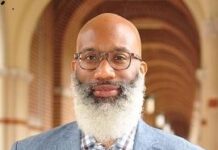 A new study led by researchers at Cornell University in Ithaca, New York, found that people of different racial and ethnic groups defined environmental issues differently.
A new study led by researchers at Cornell University in Ithaca, New York, found that people of different racial and ethnic groups defined environmental issues differently.
The survey found that there were, in fact, demographic differences in how people viewed environmental issues, with racial and ethnic minorities and lower-income people more likely to consider human factors such as racism and poverty as environmental issues.
 Neil Lewis Jr., an assistant professor of communication in the College of Agriculture and Life Science at Cornell University and a co-author of the study, stated that “the reason we think this is happening is because of the differences in where people live. Given the nature of stratification and segregation in the U.S., minorities tend to live in places with more exposure to environmental hazards. And so it’s easier to see that these other issues in society, like poverty and racism, are likely to affect environmental outcomes.”
Neil Lewis Jr., an assistant professor of communication in the College of Agriculture and Life Science at Cornell University and a co-author of the study, stated that “the reason we think this is happening is because of the differences in where people live. Given the nature of stratification and segregation in the U.S., minorities tend to live in places with more exposure to environmental hazards. And so it’s easier to see that these other issues in society, like poverty and racism, are likely to affect environmental outcomes.”
Understanding how different groups of people view environmental issues is important when building coalitions to seek environmental justice, Lewis said. Marginalized people are underrepresented when it comes to making environmental decisions, according to the researchers, and understanding which issues motivate them could help inspire them to take action.
Senior author Jonathan Schuldt, an associate professor of communication at Cornell University, added that “you could go out and talk about climate change and invasive species, but those might not be what really counts as the leading environmental issues for the communities you want to reach. For certain communities the most pressing environmental issue might be the flooding that prevents their kids from enjoying the city park. It might be related to drug use. So I think this work can reorient our thinking about how to inspire engagement.”
“The conventional wisdom is, we have multiple sets of issues in our society,” Dr. Lewis said. “We have environmental issues like climate change, and we have inequality issues like poverty and racism. And these are things that are in separate buckets. But there is a set of people who know that these are all intertwined, and we should look at them together in a more holistic way.”
Dr. Lewis is a graduate of Cornell University. He holds a master’s degree and a Ph.D. from the University of Michigan.
The full study, “What Counts as an ‘Environmental’ Issue? Differences in Issue Conceptualization by Race, Ethnicity, and Socioeconomic Status,” was published on the website of the Journal of Environmental Psychology. It may be accessed here. Lead author Hwanseok Song conducted the research while a doctoral student at Cornell. He now is an assistant professor at Purdue University in West Lafayette, Indiana.












